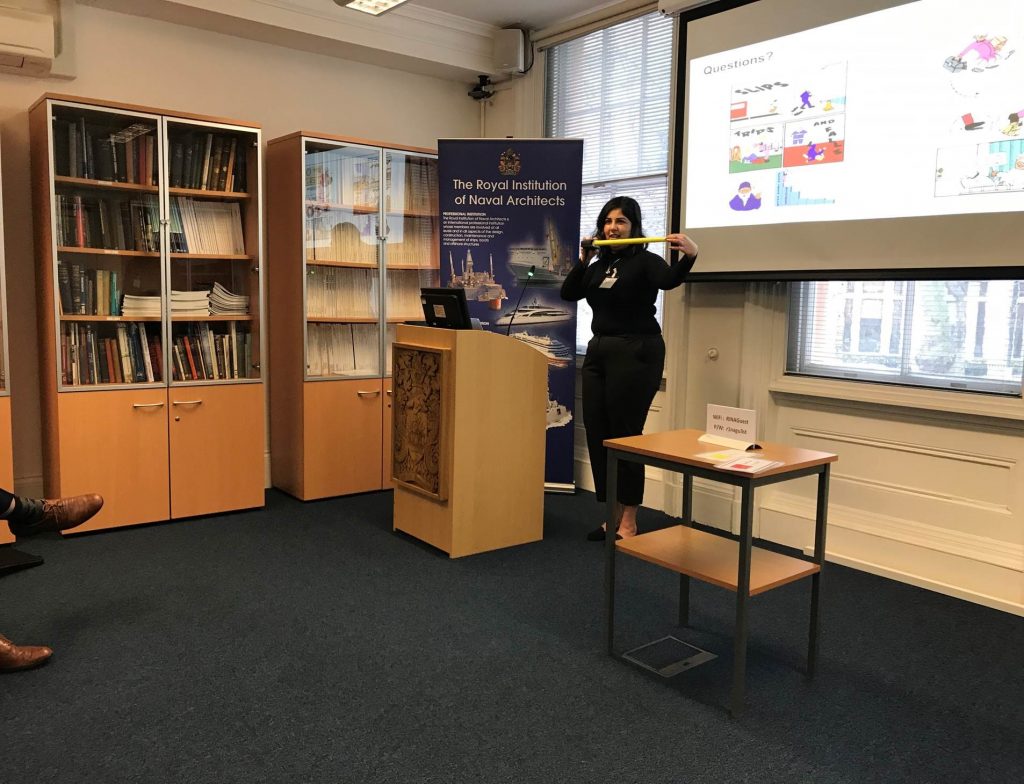
As we consider how best to use autonomous systems in the maritime sector it becomes ever more important to consider the human factor in the design and safe operations of ships. Current third year ship science student Dhwani Oakley recently presented at the Royal Institution of Naval Architects(RINA) International Conference on Human Factors at RINA HQ in London.
The motivation for the conference as stated by RINA reflects the growing awareness of the importance of human factors within ship design. The work of naval architects and marine engineers directly influences the operability and safety of ships and seafarers and decisions made at the design stage influence human behaviour. Therefore an improved understanding of human factors and ergonomics by engineers can help us identify and ‘design out’ hazards which cause accident and injury.
The conference included discussion around a wide range of human factors topics including:
- The integration of human factors into the design process
- Practical applications of human factors engineering
- Improving habitability
- The design of navigation & control systems and onboard operational organisation and teamwork.
- The design for safety and performance
Dhwani delivered a presentation about the role of Class in human factors and the development of ergonomics guidance for safe access and egress, Dhwani’s work was carried out while working as an intern last summer with Lloyd’s Register’s (LR) Global Technology Centre. LR are also based on our University Boldrewood Innovation Campus (SO16 7QF)
